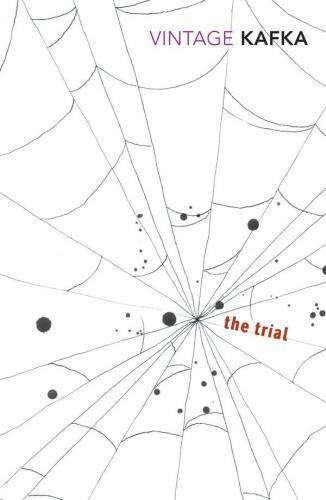THE TRIAL by Franz Kafka, Book Review
The Trial Synopsis:

The terrifying tale of Joseph K, a respectable functionary in a bank, who is suddenly arrested and must defend his innocence against a charge about which he can get no information. A nightmare vision of the excesses of modern bureaucracy wedded to the mad agendas of twentieth-century totalitarian regimes.
Translated from the original German by Edwin Muir and Willa Muir.
Genre: Drama, Mystery, Literature, Translation
Disclosure: If you click a link in this post we may earn a small commission to help offset our running costs.
Sign up to our Booklover Book Reviews emails and receive our gift for new subscribers. LEARN MORE >>
BOOK REVIEW
There is a glaring gap in my reading experiences when it comes to classic literature… In part I put that down to not having studied literature at a tertiary level, but what’s my excuse for not having remedied that in the many years since? Too many interesting releases and exciting new authors, or more precisely the talent of publishers at marketing their wares. Kafka is one of those authors I’ve always felt I “should have” read.
So while I’m pleased to now have the experience of reading The Trial, I don’t think I will be rushing back to read more of Kafka’s work anytime soon.
On the face of it The Trial is a thinly veiled treatise on the subject Franz Kafka received his doctorate in, jurisprudence (‘the philosophy of law’). I found it a challenging read in many respects.
I am pretty sure I was supposed to feel empathy for Kafka’s protagonist Joseph K. And, while I did sympathise with his abject frustration, I found him wholly unlikeable as a person. Despite his powerlessness, he persisted in clinging to notions of superiority over others.
He felt himself as much at liberty as is normally only felt in foreign parts when speaking with people of lower standing, keeping everything about himself to himself, speaking only casually about the interests of the other, able to raise him to a level above one’s own, but also able, at will, to let him drop again.
In particular, his treatment of those who were trying to help him in whatever small way they could, with disdain was a real turn off for me. The narration of his thoughts and actions is also quite laborious, and the prose meandering.
Another issue with this piece is that is unfinished. Chapters end abruptly, some characters are introduced but then not fully utilised and one does wonder whether the ordering of the chapters is the end result Kafka had in mind because the story is noticeably disjointed. While there are elements of the surreal throughout, perhaps I’m displaying my naivety in saying there is one section involving a whip that had me just plain confused.
So why, I ask myself, is The Trial considered a classic? The answer is, it is original, unsettling and has elements of the profound. And, from a literary standpoint, much can be read into what the author intended the story to actually convey. I will leave the full range of allegorical meaning to be debated by more learned minds than I. Since I am fortunate enough to have never experienced life within a police-state, the story’s artistic parallels with ‘the process’ a terminally ill person goes through spoke to me most.
While it may not be pleasurable to read, The Trial by Franz Kafka is undeniably thought-provoking.
BOOK RATING: The Story 3 / 5 ; The Writing 2.5 / 5 — Overall 2.75
This review counts towards my participation in German Literature Month hosted by Lizzy and Caroline.
The Trial is available from:
Plot summaries, character maps and other useful study materials are available at CourseHero.com
About the Author, Franz Kafka
Franz Kafka (1883-1924) was born into a Jewish family in Prague. In 1906 he received a doctorate in jurisprudence, and for many years he worked a tedious job as a civil service lawyer investigating claims at the state Worker’s Accident Insurance Institute. He never married, and published only a few slim volumes of stories during his lifetime. Meditation, a collection of sketches, appeared in 1912; The Stoker: A Fragment in 1913; The Metamorphosis in 1915; The Judgement in 1916; In the Penal Colony in 1919; and A Country Doctor in 1920. The great novels were not published until after his death from tuberculosis: America, The Trial, and The Castle.
Other reviews of The Trial
Goodreads, Tony’s Reading List; Addicted to Media; InsaneOwl; Eclectic Indulgence

